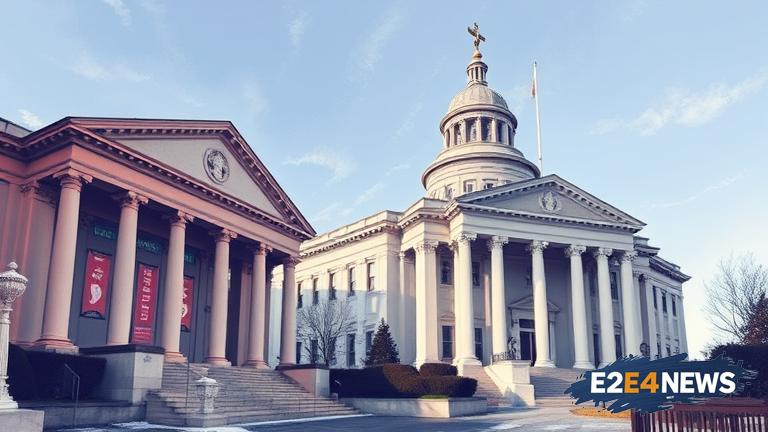A federal appeals court has ruled that a church in Washington state can proceed with its lawsuit challenging the state’s abortion coverage law. The law, which was enacted in 2018, requires employers to provide insurance coverage for abortion services if they also cover maternity care. The church, which is a non-profit organization, argues that the law violates its religious freedom by forcing it to pay for abortion services that are contrary to its beliefs. The church had previously attempted to challenge the law, but its lawsuit was dismissed by a lower court. However, the appeals court has now ruled that the church has standing to bring the lawsuit and that its claims are not barred by the statute of limitations. The case will now proceed to trial, where the church will argue that the law imposes a substantial burden on its exercise of religion. The church’s lawsuit is part of a larger trend of challenges to abortion coverage laws across the United States. Many conservative organizations and individuals have argued that such laws infringe on their religious freedom and force them to participate in activities that are morally objectionable to them. On the other hand, supporters of the law argue that it is necessary to ensure that women have access to comprehensive reproductive healthcare, including abortion services. The Washington state law is one of several similar laws that have been enacted in recent years, as part of a broader effort to expand access to abortion services and protect reproductive rights. The law has been praised by reproductive rights advocates, who argue that it helps to ensure that women are able to make their own decisions about their healthcare, without interference from employers or insurers. However, the law has also been criticized by some who argue that it does not provide adequate protections for conscience rights or religious freedom. The church’s lawsuit is likely to be closely watched by both supporters and opponents of the law, as it has the potential to set an important precedent for future challenges to abortion coverage laws. The case may ultimately be decided by the US Supreme Court, which has previously ruled on similar issues. In recent years, the Supreme Court has issued several rulings on abortion and reproductive rights, including a landmark decision in 2022 that overturned Roe v Wade. The court’s decision in that case has had significant implications for abortion laws across the United States, and has led to a surge in challenges to abortion coverage laws and other reproductive healthcare policies. As the church’s lawsuit proceeds, it is likely to be influenced by these broader trends and developments in the law. The outcome of the case will depend on a variety of factors, including the specific arguments made by the church and the state, as well as the precedents set by previous court rulings. Ultimately, the case has the potential to shape the future of abortion coverage laws in Washington state and beyond, and to influence the ongoing debate over reproductive rights and religious freedom. The church’s lawsuit is a reminder that the issue of abortion remains highly contentious and deeply divisive, with passionate advocates on both sides. As the case proceeds, it is likely to attract significant attention and scrutiny from the media, the public, and policymakers. The church’s arguments will be closely examined, as will the state’s defenses of the law. The case may also involve complex questions of constitutional law, including the scope of religious freedom and the limits of state power. The appeals court’s ruling has given the church a new opportunity to challenge the law, and it remains to be seen how the case will ultimately be decided. The church’s lawsuit is part of a larger conversation about the role of religion in public life, and the balance between individual conscience and the demands of the law. As the case proceeds, it is likely to raise important questions about the nature of religious freedom and the limits of state power. The outcome of the case will have significant implications for the church, the state, and the broader debate over reproductive rights and religious freedom.





